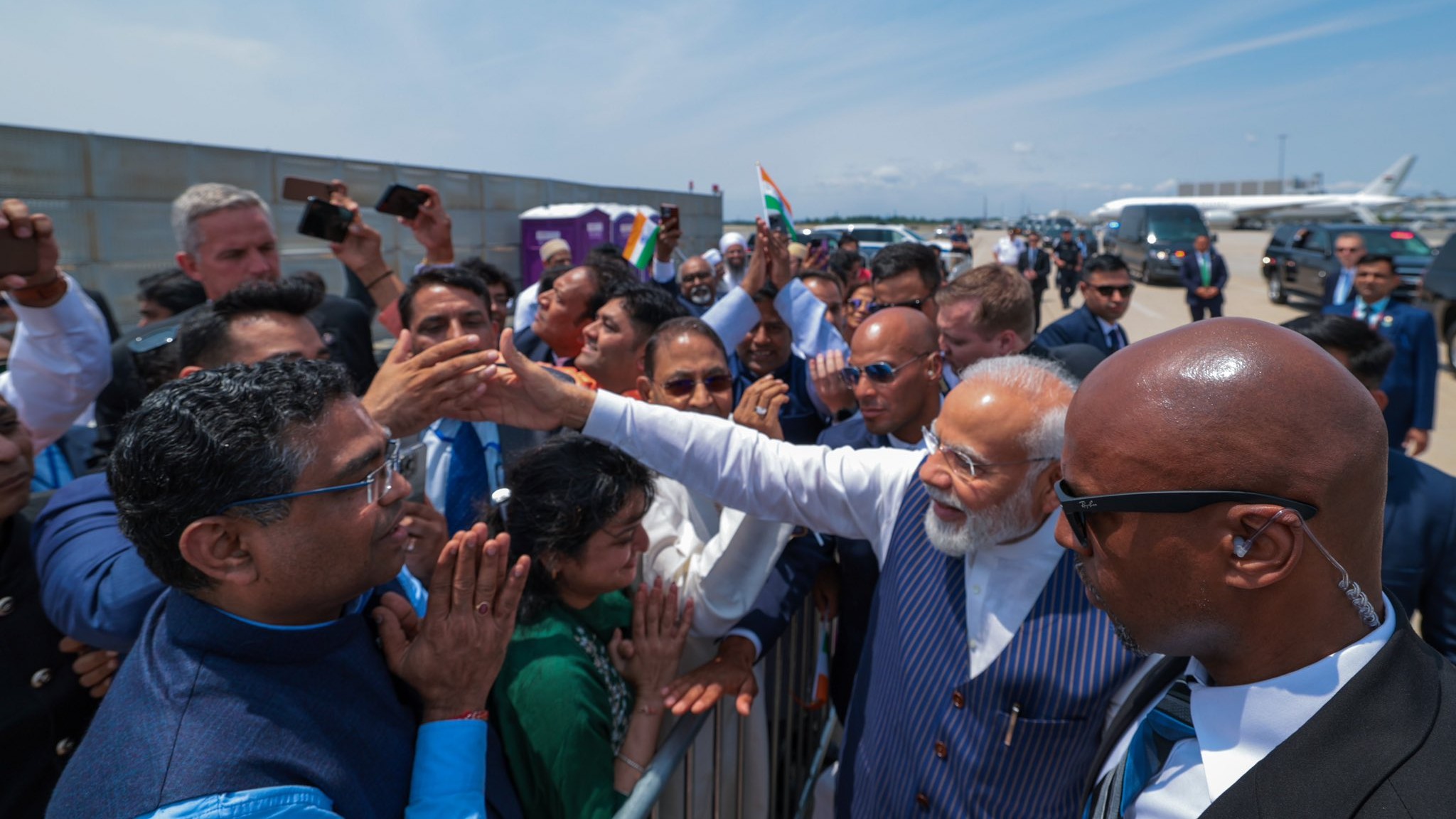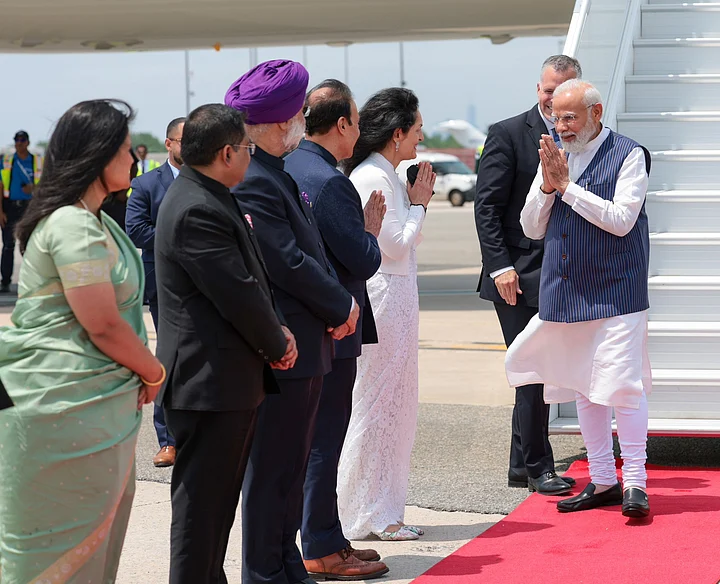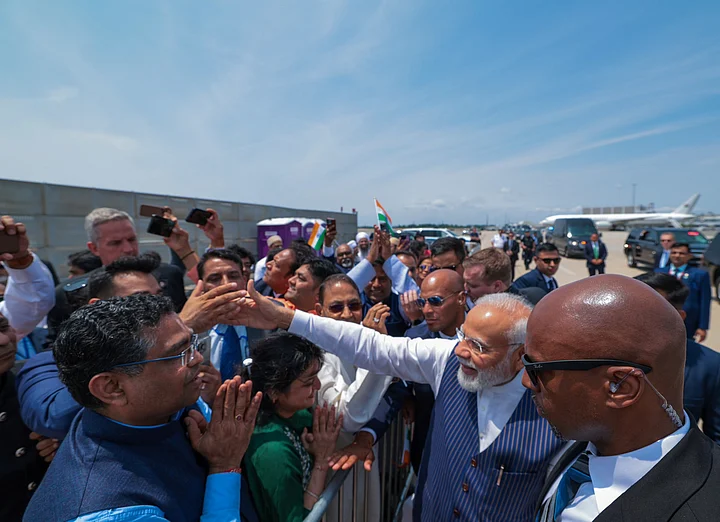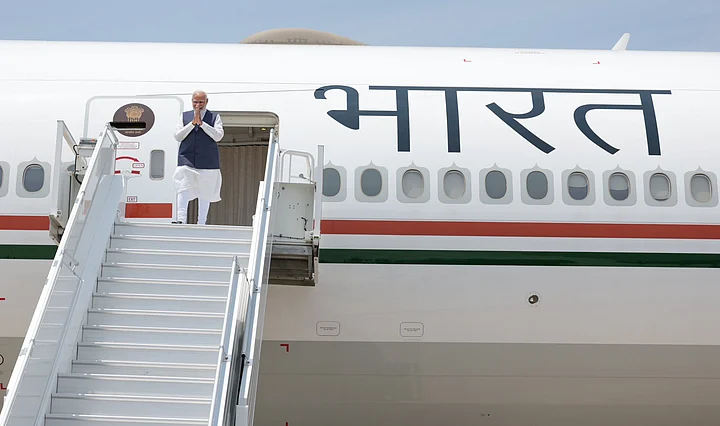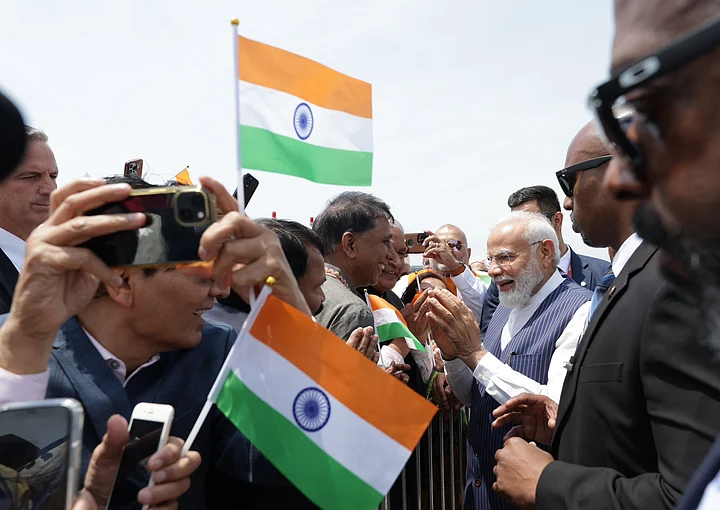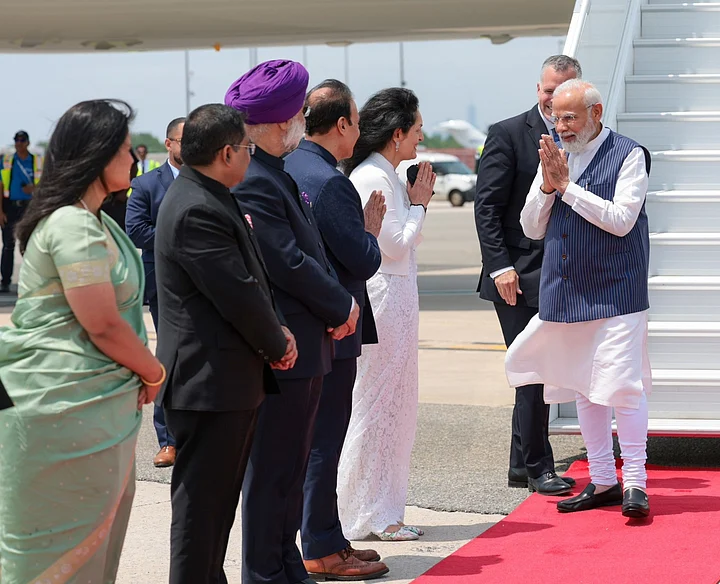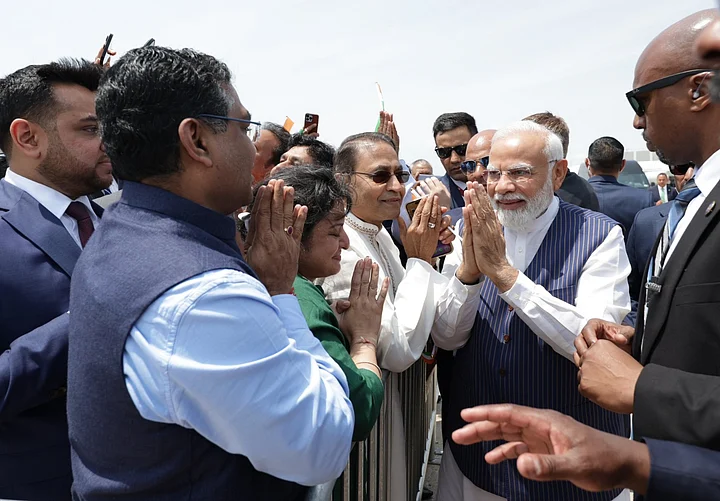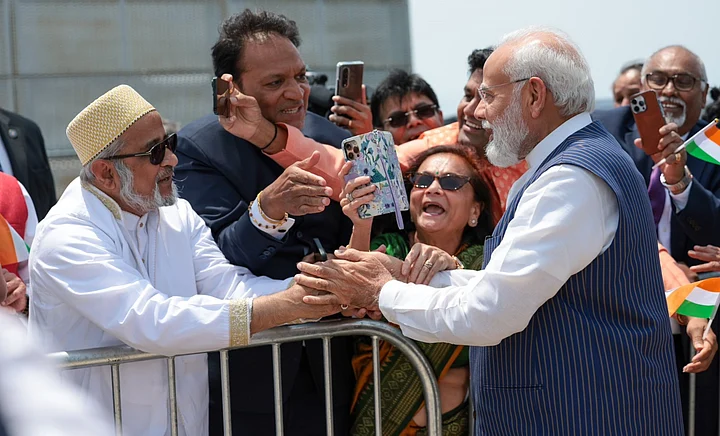After Prime Minister Narendra Modi's arrival at the Andrews Air Force Base in Maryland, for his first State visit to the United States, he tweeted and said, "Landed in New York City. Looking forward to the programmes here including interaction with thought leaders and the Yoga Day programme tomorrow, 21st June."
Following his arrival in New York, PM Modi met over two dozen industry and subject leaders like Nobel laureates, economists, artists, scientists, scholars, entrepreneurs, academicians, and health sector experts.
Modi was welcomed by large numbers of Indian diaspora members at the airport following his arrival, and was met by crowds chanting 'Modi, Modi' slogans outside the Lotte New York Palace Hotel, where the Indian PM will stay.
The Indian PM was whisked inside by security personnel, and is expected to hold interactions with the Indian diaspora within the hotel itself.
Visuals from the ground showed the Indian PM exiting his aircraft, waving to the crowd and being received by a delegation of US officials. Subsequently, the Indian PM walked towards his cavalcade as he waved and shook hands with hundreds of Indian diaspora members gathered near the tarmac.
The New York Schedule
While in New York, Modi held talks with industry giants and intellectuals, including billionaire Tesla CEO Elon Musk, renowned astrophysicist Neil deGrasse Tyson, investor Ray Dalio, Lebanese-American essayist Nassim Nicholas Taleb, senior World Bank official Paul Romer, and Indian-origin singer Falu Shah.
Modi also took part in meetings with several distinguished individuals, including Jeff Smith, an accomplished author and research fellow at Heritage's Asian Studies Center, and Michael Froman, a former US trade representative and diplomat.
Daniel Russel, an esteemed former US diplomat, and Elbridge A Colby, a bureaucrat, also held talks with the Indian PM
In addition, Modi met Peter Agre, a highly regarded American physician and Nobel laureate and also engaged with Chandrika Tandon, a renowned musical artist.
The Agenda of PM Modi's First State Visit
Ahead of his departure, PM Modi had issued a statement and said:
“I am travelling to the United States of America on a State Visit at the invitation of President Joseph Biden and First Lady Dr Jill Biden. This special invitation is a reflection of the vigour and vitality of the partnership between our democracies.”
The visit is not solely meant to improve bilateral relations, but it is being seen as one which further cements the PM’s bond with the Indian diaspora and also one where he interacts with top business executives across sectors.
Over the course of three days, Modi will attend at least three meetings where talks will be held with US President Joe Biden, participate in private and State dinners, and in a luncheon jointly hosted by Vice President Kamala Harris and Secretary of State Antony Blinken, address a joint session of Congress and hold massive diaspora events.
The Indian PM will also lead celebrations on International Day of Yoga at the UN Headquarters in New York and attend a Congressional reception and hold one-on-one talks with CEOs of top American companies, including FedEx, MasterCard, and Adobe.
Many are calling PM Modi's visit to the US a turning point in bilateral relations between the two countries, the agenda of discussions will culminate in stepping up defense cooperation and will also focus on improving trade and investment relations.
The trip also aims to promote more seamless collaboration and cooperation in various sectors, including semiconductors, cyberspace, aerospace, strategic infrastructure and communication, commercial space projects, quantum computing, as well as the utilisation of artificial intelligence in industrial and defence applications
Foreign Secretary Vinay Kwatra said that the Defence Industrial Cooperation Roadmap is expected to be one of the key outcomes of the visit and said:
"It essentially focuses on all aspects of defense co-production and co-development. It also talks about how defense industrial ecosystems of the two countries could cooperate much better, how the supply lines in the field of defense industry could also interface with each other much better."
(At The Quint, we question everything. Play an active role in shaping our journalism by becoming a member today.)
